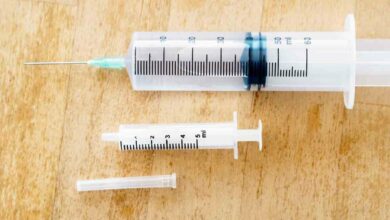Keto Diet Plan for Weight Loss -Foods to Eat and Avoid

Ketogenic diets (keto diet) have been around since the 1920s when a doctor named William keto diet. They’ve been used to help control seizures in people with epilepsy, and more recently as a weight-loss strategy. The keto diet is very low in carbohydrates, moderate in protein, and high in fat.
When your body doesn’t have enough carbs from food to burn for energy, it burns stored fat instead. This produces molecules called ketones, which replace glucose as your body’s main energy source. Many people find the keto diet helpful for weight loss because it allows them to eat relatively normal-sized portions of food and still lose weight.
What is the keto diet and how does it work?
The keto diet is a low-carb, high-fat eating plan that causes your body to enter a state of ketosis. In ketosis, your body burns stored fat for energy instead of glucose. The result is rapid weight loss.
When you eat a lot of carbs, your body converts them into glucose, or blood sugar, which it then uses for energy. But when you cut your carbs to 50 grams per day or fewer, your body has to find another source of fuel. That fuel is fat.
When you eat very few carbs, your liver converts fat into ketones and begins using them for energy. This process is called ketosis.
Ketosis is a normal metabolic process. When your body doesn’t have enough carbs for energy, it burns fat for fuel instead. This causes ketones to build up in your blood, which can be detected with a urine test.
Also Read: How Do You Treat Diabetes?
What are the benefits of the keto diet?
Weight loss is the most common benefit of the keto diet. In one study, people who followed a keto diet lost 2.2 times more weight than those who followed a low-fat, calorie-restricted diet for four months.
Another study showed that people who followed a ketogenic diet lost 3 times more weight than those following a conventional, low-fat diet.
In addition to weight loss, the keto diet has been shown to improve other health markers. A keto diet has been shown to improve triglyceride levels and cholesterol levels most significantly in people with metabolic disorders. The keto diet can also help decrease blood sugar levels, improve insulin sensitivity, and reduce inflammation.
- Weight loss: One of the most common reasons people start a keto diet is for weight loss. Studies have shown that the keto diet can help you lose weight and body fat.
- Blood sugar control: The keto diet can also help stabilize blood sugar levels. This is especially beneficial for people with type 2 diabetes.
- Reduced risk of disease: Some research has shown that the keto diet may help reduce the risk of heart disease, Alzheimer’s disease, and cancer.
Who should NOT do the keto diet?
People with diabetes or chronic kidney disease should not attempt a ketogenic diet without consulting their health care provider first. The keto diet is also not recommended for children, adolescents, pregnant women, or people who are trying to gain muscle mass.
People with type 1 diabetes may be able to try a modified form of the keto diet under medical supervision, but it’s still not recommended for children or adolescents.
People with chronic kidney disease should not attempt a ketogenic diet without consulting their health care provider first.
The keto diet is also not recommended for pregnant women or people who are trying to gain muscle mass.
Also Read: Health Risk Assessments: What You Don’t Know Can Cost You
What are the side effects of the keto diet?
The most common side effects of the keto diet include fatigue, headaches, brain fog, and nausea. These symptoms usually go away after a few days or weeks of following the diet.
Other potential side effects include bad breath, kidney stones, decreased bone density, constipation, and pancreatitis. People with type 1 diabetes may also experience low blood sugar levels if they take too much insulin.
How do I start the keto diet?
If you’re interested in trying the keto diet, talk to your doctor first to make sure it’s safe for you. They can help you create a plan that fits your individual needs and health goals.
Once you get the green light from your doctor, there are a few things you need to do to get started:
- Calculate your macros.
- Stock up on low-carb foods.
- Create a meal plan.
- Track your progress.
- Adjust as needed.
Foods to eat on the keto diet
The keto diet is a high-fat, low-carb eating plan. This means you should eat more fats and fewer carbs to enter ketosis.
To help you choose the right foods, here’s a list of food groups and examples of what you can eat on the keto diet:
- Protein: Meat, poultry, seafood, eggs, tofu, and dairy.
- Fat: Butter, oils, avocado, olives, and nuts.
- Low-carb vegetables: Broccoli, kale, spinach, cabbage, and other leafy greens.
- Condiments and sauces: salt, pepper, vinegar, lemon juice, olive oil, and sugar-free salad dressings.
- Beverages: water, coffee, and tea.
Foods to avoid on the keto diet
While there are plenty of healthy, keto-friendly foods out there, there are also some foods you should avoid. Here are some examples of food groups and specific items to limit or avoid on a keto diet:
- Sugar: candy, ice cream, cookies, cakes, and other desserts.
- Starch: bread, pasta, rice, potatoes, and other starchy vegetables.
- Fruit: bananas, apples, oranges, pears, and other fruit juices.
- Legumes: beans, lentils, peas, and other high-carbohydrate vegetables.
- Alcohol: beer, wine, spirits, and other sugary drinks.
How to follow a keto diet plan for weight loss
If you want to lose weight on the keto diet, you should follow a few basic guidelines:
- Eat fewer carbs and more fat.
- Make sure you’re getting enough protein.
- Drink plenty of water and get enough sleep.
- Avoid processed foods, sugary drinks, and alcohol.
- Fill up on fiber-rich vegetables and low-sugar fruits.
- Exercise regularly to support your weight loss goals.
- Tack your progress with regular weigh-ins and body measurements.
You can find and book the top Nutritionist in Faisalabad through Marham. Or you can call at Marham helpline: 0311-1222398 and schedule your appointment.
FAQs
Who should avoid the keto diet?
Those with kidney damage, people at risk for heart disease, pregnant or nursing women, people with type 1 diabetes, pre-existing liver or pancreatic conditions, and anybody who has had their gallbladder removed should not try the Keto diet.
Can I lose weight on keto without exercise?
Yes, in the simplest of terms. Ketogenic diets absolutely work without exercise. In fact, many personal trainers and nutritionists would advise against following the keto diet if you were about to begin a strict training schedule.
Can I have a cheat day in keto?
On the keto diet, you should avoid cheat meals and days. Too many carbohydrates will knock you out of ketosis, and it might take several days to a week to get back into it. Meanwhile, your weight loss may be jeopardized.












